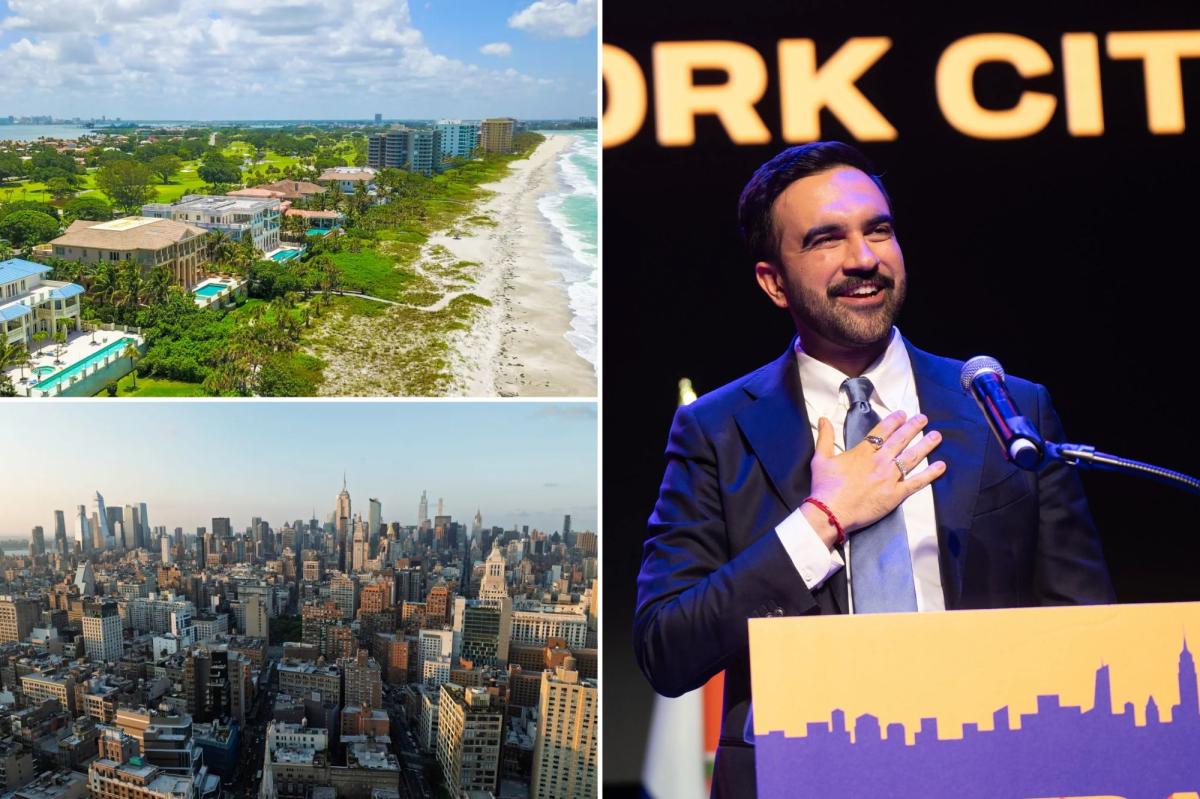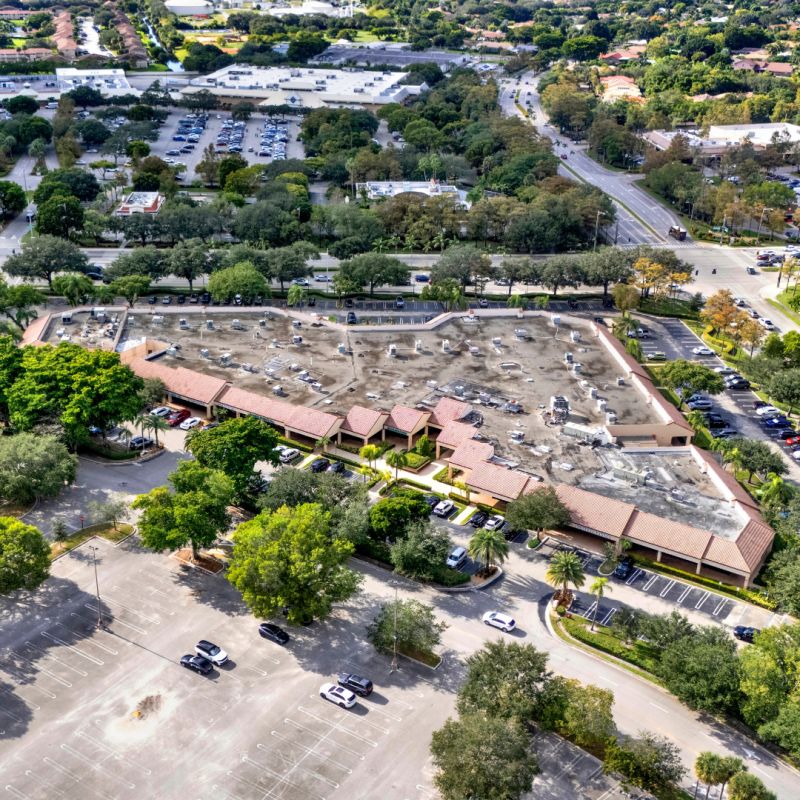O
n Tuesday night, after Zohran Mamdani won the New York City mayoral race, Miami’s real‑estate scene erupted. The surge wasn’t from New Yorkers fleeing the city—at least not yet—but from Florida residents who feared a future influx of wealthy Northeastern buyers and rushed to lock in homes before the wave hit.
By Wednesday morning, waterfront properties that would normally linger on the market through Thanksgiving were under contract at a blistering pace. Condos that had sat idle during the summer heat suddenly received multiple offers. Local buyers—Miami, Boca Raton, and Palm Beach residents—felt they had one last chance before a flood of New Yorkers entered the market.
“We’re seeing a spike in interest from NYC because of the election,” said Dina Goldentayer, a luxury broker with Douglas Elliman in Miami. “Area codes 917 and 212 are popping up almost as much as they did during the height of the COVID pandemic.” She added that the surge was driven by fear: “Local buyers are scared that wealthy New Yorkers will come in and buy everything up, so they’re putting homes under contract now.”
Goldentayer noted the urgency was unusually seasonal. “I don’t remember ever being this busy before Thanksgiving. Usually our season starts after Art Basel.” She said the uptick began three to four weeks ago, and in the last 48 hours, properties that had been quietly available for weeks flipped to pending as locals rushed to close deals earlier than planned. “It’s usually a two‑week negotiation period, a two‑week inspection period. But with the election that just took place, that’s what I believe has really fueled the market specifically this week.”
The phenomenon isn’t limited to Miami. Goldentayer said her counterparts in Boca Raton and Palm Beach are experiencing the same rush. In Orlando and Winter Park, a similar psychological shift is underway, albeit at different price points. “I’ve had a local buyer over the last couple of days have that exact conversation of what will happen now that New York City has elected this new mayor. It is a concern,” said Bryan Hyser of the Agency’s Orlando office. “They are asking if this is the right time to buy before things get crazy.”
Miami and Palm Beach agents say local buyers accelerated purchases out of concern that New York residents unsettled by Mamdani’s platform might begin seeking Florida homes, especially high‑end waterfront properties. What was once a rational delay—waiting out high interest rates—now looks like a gamble. “Every buyer says the same thing: I want to sit and wait until interest rates get better. But if rates are going to take longer and we’re going to see a large influx of buyers coming from out of state, it’s probably smart to buy today,” Hyser said. He described a Winter Park deal where the buyer referenced both Mamdani’s platform and future property tax changes as reasons to lock something in sooner. “There’s a lot of uncertainty in New York and what the mayor is going to end up putting into policy,” he added. “People want to buy before the chaos.”
At the very high end—waterfront estates in Miami Beach, oceanfront in Palm Beach, and new luxury towers along the Intracoastal—wealthy New Yorkers are not panicking; they are planning. Brokers in Orlando reported similar conversations among cautious local buyers weighing timing before possible competition rises. Daniel de la Vega, president of One Sotheby’s International Realty, said the potential migration is real but slow‑moving. “We were curious because Mamdani ran on such drastic policies. A lot of people are questioning whether he’s actually going to be able to implement them,” he said. “I firmly believe that we will see it trickle in over the next four years.” He added that the ultra‑luxury segment has already been active: “In the luxury market, we have sold so much in the $20 million plus range in the last two months. And it’s been over $200 million in real estate sold.” The buyers are explicit about their reasoning. “They say ‘We’re not ready to move today, but we think we’ll be ready to move in 18 months.’ And if not, it’s going to be a great investment for us at the very least,” he said.
Meanwhile, wealthy New Yorkers are expressing interest and touring properties, but they are largely purchasing second homes as a strategic hedge rather than relocating immediately. In New York, there has been no corresponding sell‑off. “For the regular New Yorkers, and I’m talking about the millionaires, which are still extremely affluent, but they’re entrenched in school systems, they’re entrenched in careers— I don’t think people can just pick up and leave that quickly,” said Ruthie Assouline of Douglas Elliman. She said two groups are emerging: those who were already considering relocating and may now accelerate their timelines, and those who plan to stay unless conditions meaningfully deteriorate. “You have plenty of people that were on the edge for a variety of reasons, that now they’re probably pushed out the door after this election,” she said. “But you also have a huge amount of people that are diehard New Yorkers. They’re going to fight and stay in that city till the end of time.” Assouline said New Yorkers who called after the election were not looking to sell. They wanted options. “Did we get several calls yesterday from our New Yorkers saying we’re flying in next week? We want to have another option. Yeah. But they didn’t say we need to sell New York. They just said … we want that optionality,” she said.
In New York, brokers say the real test will come six months into Mamdani’s term, with no sign yet of a sell‑off or flight. “He just got elected. It’s been a day. It’s a week by week situation. So you’re monitoring the data and we’ll see how it’s going to unfold,” she said. Market data supports that view. Manhattan inventory has not meaningfully changed. “Basically inventory between the end of September and the end of October rose .002%,” said appraiser Jonathan Miller. “Like there was no real change.” That stability is shaping broker guidance. “I think it’s going to take six months to see how things really shake out,” Douglas Elliman’s Keyan Sanai told The Post. “People are not just going to pack and go, but whoever is packing and going is because they don’t see themselves raising their kids in the city,” Ethan Assouline of Douglas Elliman said. “I think everybody is watching and monitoring and coming in January, within the first few months, Mamdani may piss off a lot of people who will just start moving for the next school year.”















